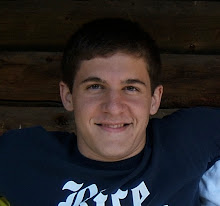The title of this post comes from the mission statement of Deenanath Mangeshkar Hospital: "Rational ethical medical service available to rich and poor alike." Today was another day spent in pediatrics, and I found that some of the issues that doctors face in that department really start to challenge the notion of "ethical" medicine. I have no clear answers for the major ethical questions I saw today, but I thought I'd share some of them here. Feel free to respond with your own comments and thoughts regarding these questions. I feel confident that some people who read this post will have strong opinions one way or the other on these issues. I do not, but I would love to hear the opinions all the same.
The first concerns premature babies. Modern science has pushed the limits of how early a baby can be born. At about 38 weeks, a baby is considered full-term. At 28 weeks, a baby born prematurely can generally survive without major complications. 26 weeks is about the earliest a baby can survive at in India. In the United States, technology has pushed that to 24 weeks. Those 2-4 weeks is where the major ethical question lies. Is there a point at which we stop pushing the limits of survivability and begin to accept the normal course of nature? Babies born before 28 weeks often will never neurologically develop properly, which means permanent brain disabilities for the child. Is it really worth it? It's a hard question to answer, since neither answer is easy. On one hand, human life is precious, especially to parents who love their child the minute it untimely leaves the womb. On the other, perhaps there is something to be said for letting nature run its course.
The second concerns a child that we saw today. The baby had been born normally, and yet soon after birth they realized something was very wrong with the GI tract. They went into operate and found that the girl had an almost completely dysfunctional small intestine. Naturally, the doctor proceeded to perform the required surgery--almost complete removal of the small intestine. They attached what remained to the colon, but as anyone with a cursory knowledge of biology would know, the human body is not designed to function properly without the small intestine. In order to survive, this baby will have a tube in its body that it will be fed through. That tube will be used, every day, to feed the child the nutrients it needs. If there is any hope, it is that if the child survives until the age of 10 (which, in her condition, may not be likely to begin with), the doctors hope her small intestine will finally have grown out enough to be capable of functioning again.
Unfortunately, that hope will never become a reality. The medical costs incurred are already expensive, and the solution they feed her will have to be individually prepared in limited quantities every time she feeds. Such a food source would be exorbitantly expensive, and very few Indian families have the means of fronting such cost for so long. Yet the alternative is obvious. Eventually, the once-proud parents of this newborn child will have to face the reality of the situation and let their child starve to death while they watch. There is simply no conceivable hope of survival for this child. What can you do when you're placed in that situation? Adults can ask that they not be kept alive under certain circumstances, but a newborn infant can make no such decision. How does a parent make that sort of decision?
Modern medicine has allowed us to truly change the boundaries of life and death. We can start life earlier, keep life going longer, and yet to what end? Ultimately perhaps, modern science is simply trying to find an answer for the age-old desire for immortality. The harsh reality, however, is that modern science will never be the ultimate answer. It can surely provide great joy to people affected by it. Yesterday we saw a girl who had had heart surgery and kidney surgery come into Dr. Joshi's office for a check up. After looking at her, Dr. Joshi declared that she was "just as normal as you or I." Today in the NICU we saw premature babies who will undoubtedly go on to lead long and successful lives. While the screaming children may not appreciate it, the vaccines given will protect children from a multitude of vicious diseases. Yet science also provides great anguish and terrible decisions, as the parents of the baby girl we saw today could attest. As medicine progresses further, we will be able to save more lives and help more lives, but we will also have more of these difficult questions to answer.
Subscribe to:
Post Comments (Atom)

No comments:
Post a Comment